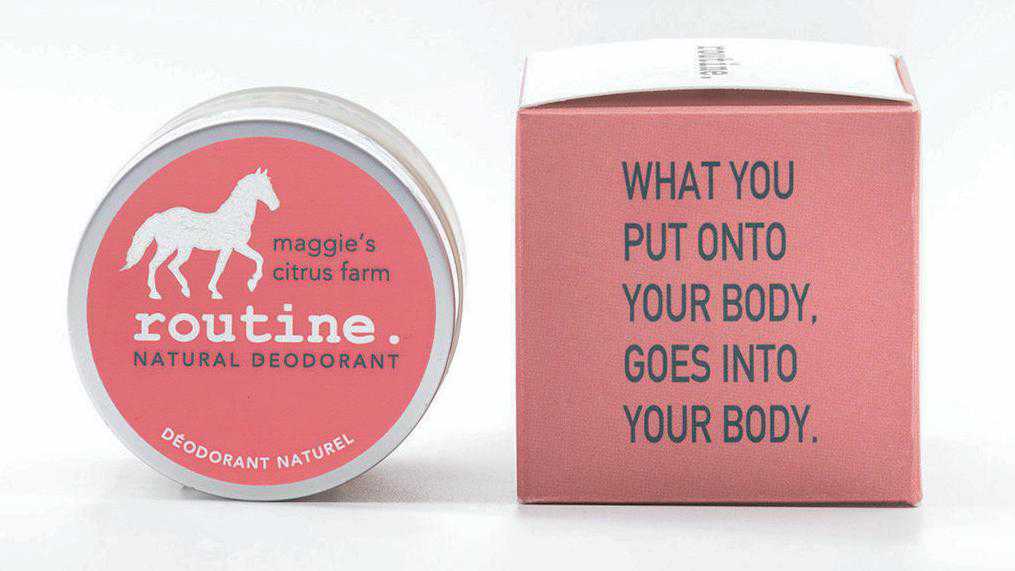Should we be using normal deodorants? What you ought to know about aluminium-free alternatives
09 February, 2021

With more persons home more than ever, the pressure to maintain appearances with the outward globe has been dialled down. After all, colleagues have probably seen each other within their pyjamas at this stage. As it’s not yet possible to catch a whiff of woke-up-past due over Zoom (although we wouldn’t guideline it out as an upgrade), now will be the ideal period to test out your daily routine - specifically in the deodorant department.
Normal deos - an unregulated definition that’s end up being the umbrella term for aluminium-free, organic, plant-structured formulas - are shouldering their way to leading of beauty shelves just like never before.
A report by Future Marketplace Insights forecast in June 2019 that the global aluminium-free of charge deodorant industry is estimated to grow by nearly 10 % over another decade, while general market trends organization Mintel followed with a survey last March saying “the natural activity continues to shape the antiperspirant and deodorant category”.
Assuming you have caught a beauty document headline with the word “aluminium” in it over the past two decades, you could hazard a guess as to what’s propelling the change.
The anti-antiperspirant movement
“I switched towards the end of last year after I find out about links around cosmetics and horrible health complaints,” says Francesca, among the dozens of normal deodorant converts who spoke to The National about ditching antiperspirants.
Jasmin says: “The research seems compelling nowadays,” while Janey stopped with them “the moment I realised the cocktail of potentially toxic substances they contain”. The Mintel survey concurs that consumer improvements have been right down to “perceptions of increased safety”.
The demonisation started when scientific research in the noughties and 2010s from Keele and other universities showed that aluminium - found in antiperspirants to temporarily stop sweating by plugging up sweat glands - exists in the brains of these experiencing Alzheimer’s disease and cancerous breasts tissue.
For many, therein lay the irrefutable evidence, and war was declared against your average Boots-bought antiperspirant, which is applied very near the breast, in the end.
Big-manufacturer deodorants - which, by default, usually do not contain aluminium, because they merely work to mask body odour - weren't remaining off the hook, either. Chemicals such as parabens, sulphates and triclosan quit eyebrows hitched excessive with suspicion.
Rather, natural alternatives, such as for example Crazy, Salt of the planet earth and Routine, are winning favour. Each manufacturer has its approach, but generally all choose ingredients users can reading and recognise - coconut, pure salts, necessary oils - that do the job to neutralise bacteria obvious in sweat, and thus mask unpleasant odours.
“What you placed into your body is absorbed by the bloodstream. That is reason to be responsible for what merchandise you are using,” says Anisha Oberoi, founder and leader of clean magnificence e-commerce website Secret Pores and skin.
The clean-living movement
After surviving breast cancer and adopting a far more natural splendor and hygiene routine, Oberoi traded in her corporate job with a tech giant to launch her own business. “Clean charm starts with standard necessities,” she says. Today, delivering quality healthy hygiene essentials is component of her objective in the UAE. “I am alarmed at the things that are legally found in personal-care products directed at female consumers.”
Her own journey into clean beauty is a necessary one, but she actually is not by yourself in her choice to ditch conventional, chemical-laced products. Regardless of the headline-worthy study being decades in the making, it’s the “clean living” movement all together that has carried substitute deodorants in to the mainstream.
A marketing manager at Routine says the manufacturer saw a sharp spike in revenue five years back. As Javed Hingora, founder, medical director and homeopathy practitioner at Dubai Homeopathy Overall health Centre, puts it: “There is a growing trend around the world to minimise the utilization of chemicals and artificial means to achieve the desired benefits."
Source: www.thenationalnews.com
TAG(s):
